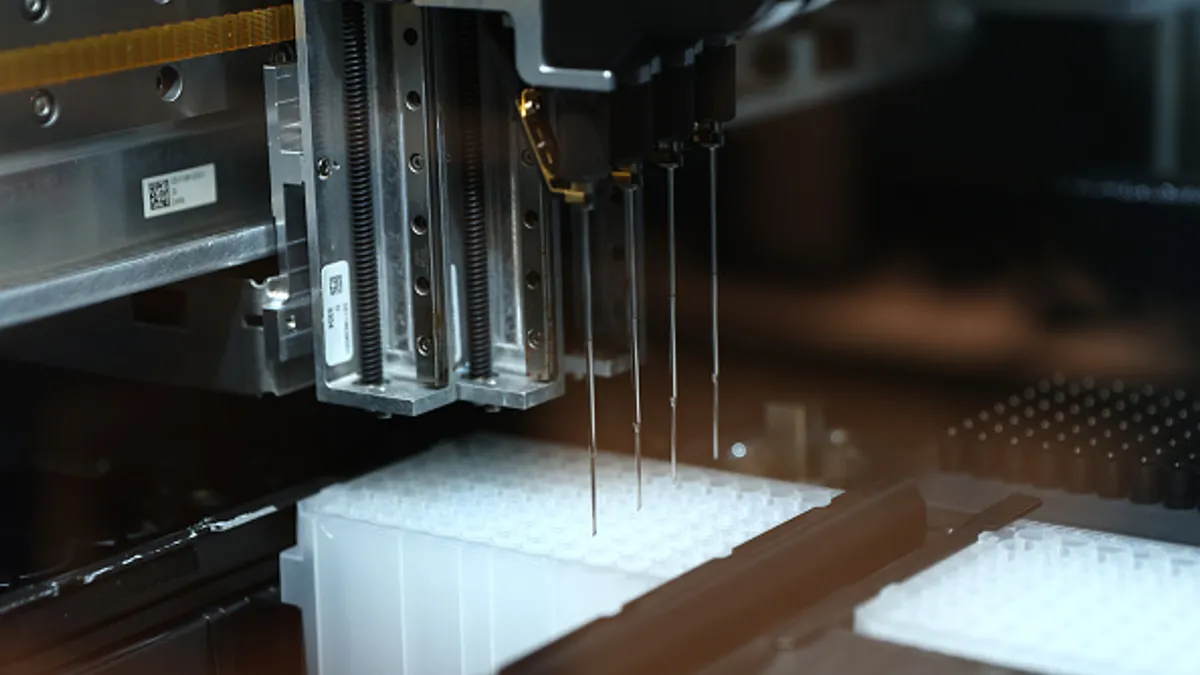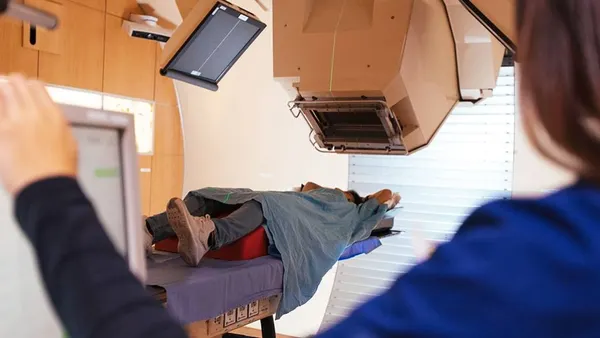In an effort to quickly ramp up U.S. capacity to test for monkeypox, the Food and Drug Administration is building on lessons learned from the rapid adoption of Covid-19 testing, and is easing regulations for test developers to win Emergency Use Authorization, a move applauded by the industry’s largest trade group.
Now, the FDA is exempting some lab-developed tests from the EUA requirements that were in place for Covid test developers. In a recent guidance, the FDA wrote it doesn’t plan to require authorization for PCR tests that are performed by a CLIA-certified laboratory and that use lesion swabs for sample collection. Developers must still notify the agency within five days of offering the test and share evidence that they have validated the test.
The American Clinical Laboratory Association, which represents several large testing companies, supported some of the decisions.
“We think there were some important aspects of the EUA policy that reflect lessons learned from Covid and the state of the public health emergency with monkeypox, that includes how, thanks to clinical laboratories, there is significant testing capacity available now, greater than demand is at this time,” ACLA President Susan Van Meter said in a phone call.
Van Meter said the test “templates” the FDA released to help developers understand what performance characteristics it is looking for will be helpful. The agency created something similar for Covid tests, but released them after the EUA policy went into effect.
In a Wednesday meeting, Toby Lowe, associate director for regulatory programs for the FDA’s Office of In Vitro Diagnostics, said the agency is not expecting to get the actual data for those lab-developed tests, but only asking labs to confirm they have appropriately validated their tests.
“We do intend to reach out to a lab if we get signals that there is a problem or concern with a test,” Lowe added.
While the guidance largely emphasized PCR tests that use a skin lesion swab sample, the FDA is working on a template for rapid antigen tests, said Timothy Stenzel, director of the FDA’s Office of In Vitro Diagnostics.
Stenzel recommended test developers that are interested in this pathway contact the Independent Test Assessment Program, which was created by the National Institutes of Health to accelerate regulatory review of over-the-counter Covid tests. Rapid antigen tests need to be validated on actual patient material, he added.
Labs that are using other types of samples, such as blood or saliva, need to notify the agency, Stenzel said. In its guidance, the FDA asked for validation data supporting any alternate sample types as part of EUA submissions.
ACLA’s Van Meter said the agency appears to be interested in encouraging at-home testing for monkeypox.
“As a general matter, anytime we can lower barriers for individuals to get the testing they need, that’s important,” she said. “And sometimes that means making sure the science is right and the tests can be validated with a patient-collected sample.”














